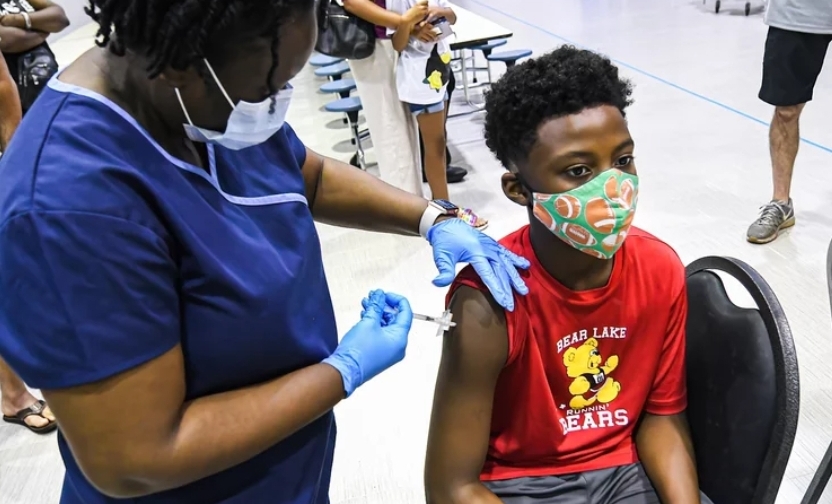The Federal Food and Drug Association (FDA) authorized the Pfizer COVID-19 vaccine for children ages 5-11 on Friday, Oct. 29. Shortly after that, on Tuesday, Nov. 2, the Center for Disease Control (CDC) moved to support this decision, giving their official recommendation that all children ages 5-11 be vaccinated. Many consider this a significant victory in the battle for sensible public health policy addressing the pandemic. Meanwhile, some commentators have criticized the decision of the FDA and CDC as being politically motivated, claiming there isn’t enough evidence in its safety profile for children yet to support widespread use.
Health officials generally consider children low-risk for COVID-19 hospitalization or death. Children also have a higher chance of developing myocarditis and other health complications after receiving certain vaccines. Still, health officials emphasize that COVID-19 causes a myriad of lasting health problems beyond initial contraction—including myocarditis—and that the benefit of taking the vaccine far outweighs the risk.
“The bottom line is getting COVID-19, I think, is much riskier to the heart than getting this vaccine,” Dr. Matthew Oster, who studies myocarditis for the CDC, said.
Parents themselves remain primarily skeptical of vaccination for the young. In one poll, only 25% said they were going to have the vaccine administered right away. The rest either wanted to wait and see how well it worked or were adamantly against giving it to their children.
“It’s a very sort of personal choice,” Editor-in-Chief of the New England Journal of Medicine and voting member of the FDA Dr. Eric Rubin said in a public meeting. “If I had a child who was a transplant recipient, I would really want to be able to use a vaccine. There are certain kids who probably should be vaccinated. The question of how broadly [to administer the vaccine] I think is a substantial one.”
“The data show that this vaccine works and is pretty safe,” Rubin continued. “Yet, we’re worried about side effects that we can’t measure yet, and it’s probably real. I do think it’s a relatively close call. This is a much tougher one, I think, than we had expected coming into it. But we’re never going to learn about how safe this vaccine is [for children] unless we start giving it. That’s just the way it goes.”
That last statement of Dr. Rubins caused quite a stir online, with many claiming that it implies the FDA is pushing forward despite not knowing the full consequences.
Beyond the personal benefits, health officials also stressed the importance of slowing the spread of the pandemic. According to Dr. Sarah Oliver of the CDC, vaccinating children 5-11 could prevent as many as 600,000 cases of COVID-19 by March of next year.
While some disagreement remains on whether the Pfizer vaccine should be administered only to high-risk children or whether it should be used more broadly, the vaccine’s approval for ages 5-11 is here to stay.

